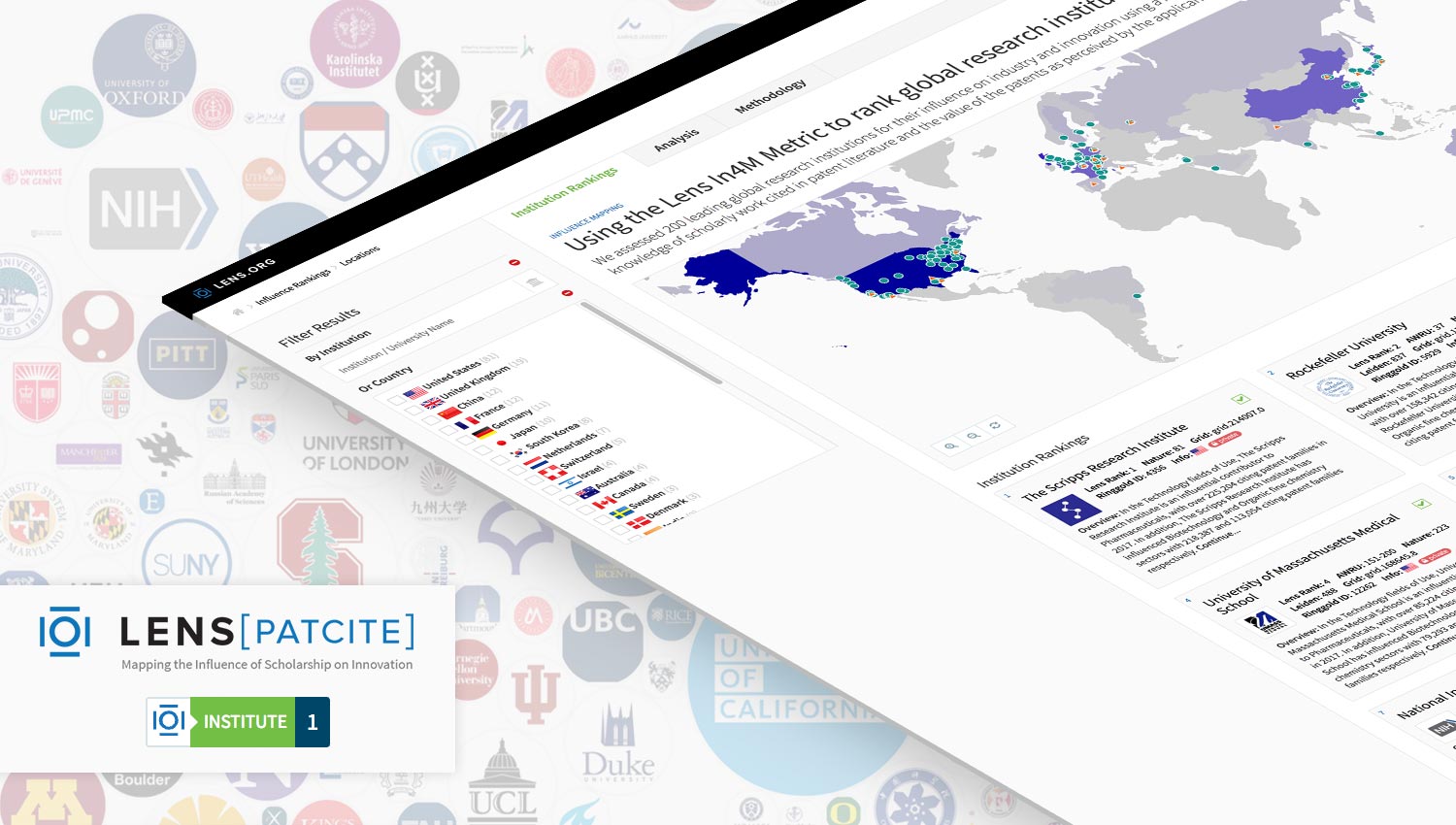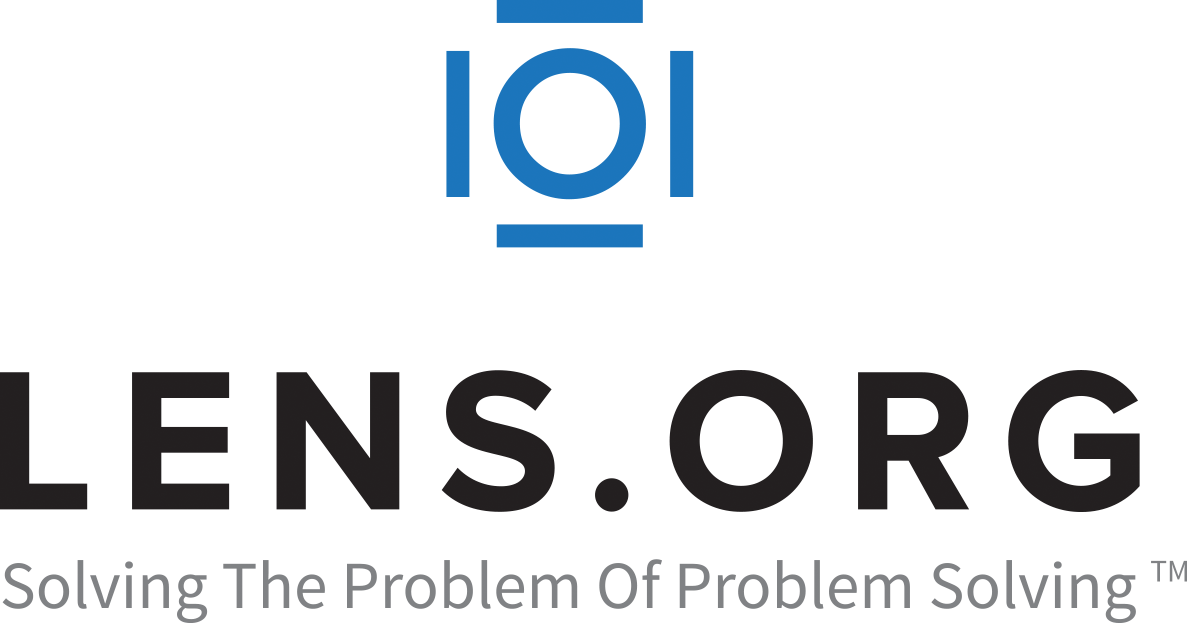
QUT spin-out company The Lens has launched a new open web platform that reveals how academic research impacts industry and innovation.
The Lens and its new global In4M Ranking system feature prominently in the Nature Index 2017 Innovation supplement, published today in leading science journal Nature.
In collaboration with PubMed at the US National Institutes of Health’s National Center for Biotechnology Information and the publisher’s association CrossRef, The Lens team extracted and identified millions of scholarly articles cited in the global patent literature, and used these to derive the new Lens In4M Metric (International Industry and Innovation Influence Mapping).
The In4M Metric ranked 200 of the world’s leading research institutions based on the extent to which their academic work was cited in more than 100 million patent documents served by The Lens.

Nature Index editor Nicky Phillips writes that “when a patent document cites a research paper we can infer that the scholarly work may have influenced or enabled the invention. In this way, these citations can be viewed as a proxy for industry’s reliance on scientific knowledge.”
The Lens evolved from the popular patent search, Patent Lens, run since 2000 by Cambia, one of the world’s leading non-profit social enterprises. In partnership with QUT since 2009, The Lens recently spun out as a US-registered public benefit corporation.
The Lens provides a free, open and secure web platform hosting more than 100 million patents from more than 100 countries, enabling anyone to access and navigate global patents and their links with scholarly and technical literature and regulatory, legal and business data.
Founder of The Lens and Cambia Chief Executive, QUT Professor Richard Jefferson (pictured) said the In4M Metric was a new ranking system for research institutions that differed from conventional rankings of research work as cited by academics and scholars, in breaking out of the academic ‘echo chamber’ to expose potential real-world outcomes.
 Professor Jefferson, one of Australia’s most influential biotechnologists and founder of Biological Open Source movement who holds appointments in QUT’s Science and Engineering Faculty and Faculty of Law said: “This is a significant step towards ‘Innovation Cartography’ – transparently mapping how science and technology influence industry to enable scientists, investors, business and policy makers to make better, evidence-based choices in partnerships and pathways to deliver new products, services and practices for society.
Professor Jefferson, one of Australia’s most influential biotechnologists and founder of Biological Open Source movement who holds appointments in QUT’s Science and Engineering Faculty and Faculty of Law said: “This is a significant step towards ‘Innovation Cartography’ – transparently mapping how science and technology influence industry to enable scientists, investors, business and policy makers to make better, evidence-based choices in partnerships and pathways to deliver new products, services and practices for society.
“Globally, funding agencies and governments are under increasing pressure to show how scientific knowledge is translated into industry and the economy and provides benefit to society.”
In Australia, for example, the Australian Research Council is looking at methods of measuring how university research translates to tangible, real-world benefits for the nation economically, socially and environmentally, to help show where collaboration with industry and other partners could bolster and more quickly deliver these benefits.
“The Lens and its tools help to directly answer those imperatives,” Professor Jefferson said.
“This is a free and open resource that contributes new measures of social and economic influence of public funding of science, and helps create clearer pathways to choose partners, to make better decisions and to deliver value from that science.”
To help create stronger pathways to economic outcomes, The Lens’ new companion app PatCite allows individuals and organisations to explore, map, analyse, save and share patent collections that cite published scholarly works, illuminating potential partnerships.
Director of Content for the app Professor Osmat Jefferson said: “PatCite is a unique way for scientists to see directly which companies are reading their published research, to better understand how science is impacting industry.”
 Professor Richard Jefferson said the vision and leadership role of QUT in incubating and sponsoring The Lens had been critical, and was a celebration of QUT’s innovation and ‘real world’ focus.
Professor Richard Jefferson said the vision and leadership role of QUT in incubating and sponsoring The Lens had been critical, and was a celebration of QUT’s innovation and ‘real world’ focus.
QUT Vice-Chancellor Peter Coaldrake said the University was proud to be a pioneer investor in The Lens and had believed in its vision from the outset.
“QUT is committed to seeing impact from public investment, and The Lens platform is one of our tangible contributions to this goal,” Professor Coaldrake said.
“We are grateful to the Bill and Melinda Gates Foundation and the Gordon and Betty Moore Foundation for grants to QUT that supported the creation and operation of The Lens.”
Media contacts:
Karen Milliner, QUT Media, 07 3138 1841 or k.milliner@qut.edu.au, after hours, Rose Trapnell, 0407 585 901 or media@qut.edu.au
Coby Sullivan, Communications Manager, The Lens, 0400 646 906 or coby.sullivan@lens.org




